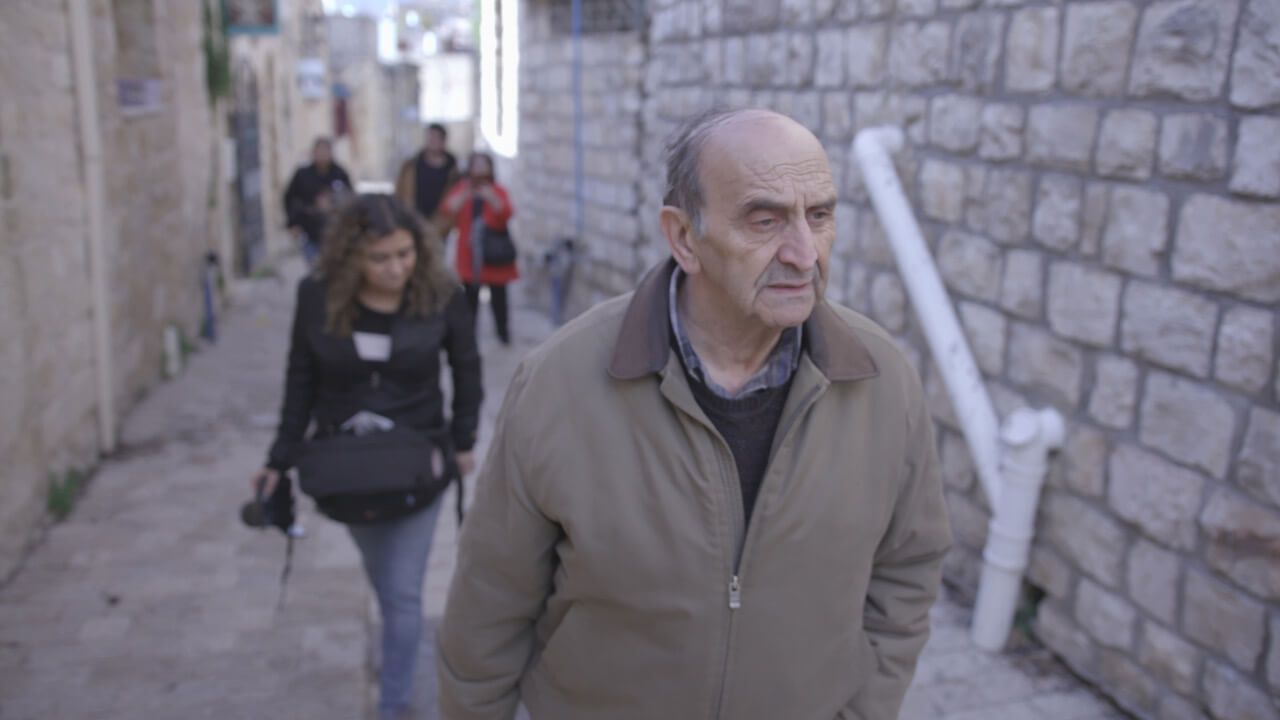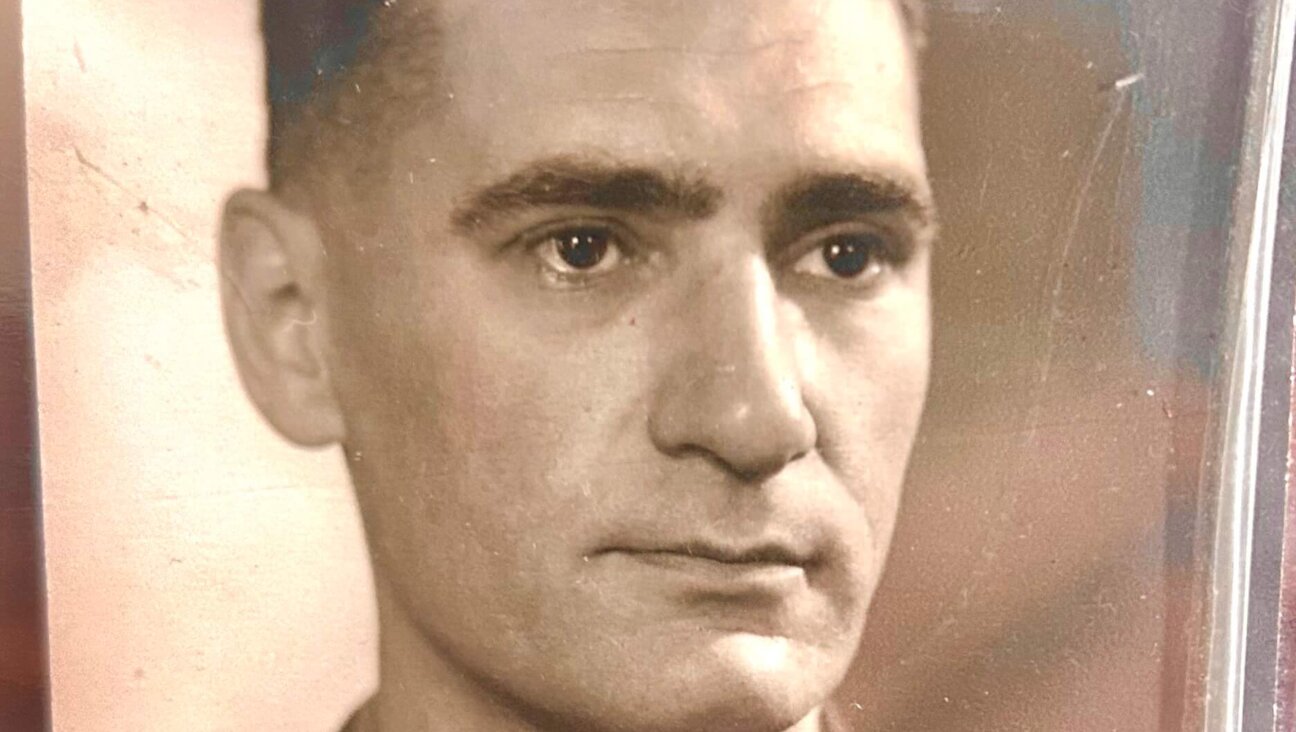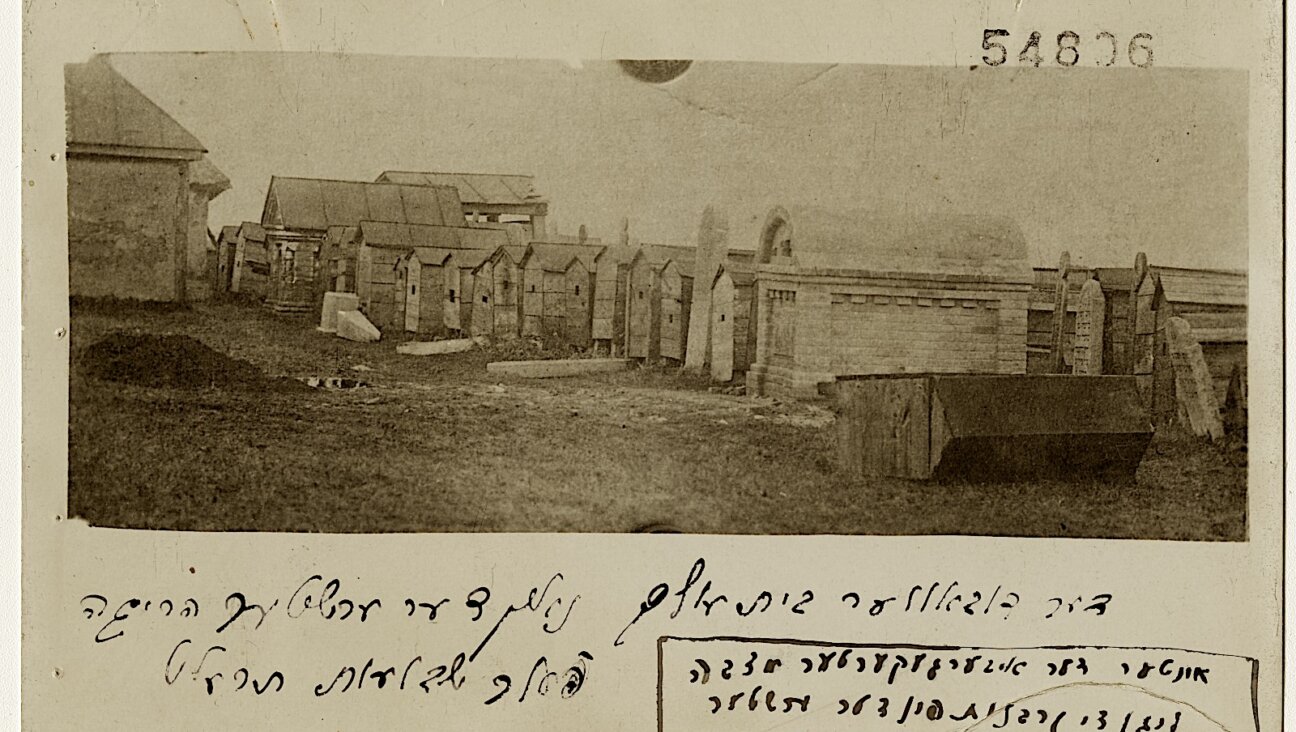Her parents fled Mexico and Mandatory Palestine, taking their traumas with them
In the documentary ‘Traces of Home,’ Colette Ghunim grapples with the burdens she hoped she’d never have to face

Colette Ghunim’s father, Hosni, revisits Safed for the first time since 1948 in ‘Traces of Home.’ Courtesy of Cinema Tropical
When Colette Ghunim’s parents first met in 1978, they quickly learned they had something in common: They both were forced to leave their homelands.
In her documentary Traces of Home, Ghunim travels with her immediate family back to her parents’ home cities. Hosni, Ghunim’s father, was expelled with his family from Safed, Mandatory Palestine, in 1948, when he was four years old. Ghunim’s mother Iza left Mexico City as a child to escape her abusive father. The film uses archival footage from Ghunim’s childhood, photos from her parents’ past, and animation to portray the harrowing journeys both her parents took. It’s a moving study of how trauma is inherited, but skirts some of the geopolitical issues at its core.
Ghunim, director of The People’s Girls, a documentary about sexual harassment in Egypt, explains in Traces that she never felt truly connected to either of her ethnic backgrounds, Mexican or Palesitnian. Her parents’ goal, she says, was to “make my life simple, safe, and American.”
It was also supposed to be tidy and unemotional. Archival footage shows Ghunim at five years old reading a letter from “Santa” reminding her of her promise to her mom: “No more crying.” Such a display of unpleasant feeling would disrupt the image of a perfect household.
The film unpacks how these expectations were in part the way Ghunim’s parents responded to their traumatic pasts — but these restrictions had unintentional consequences for their children: Ramsey developed an abusive relationship with alcohol in college; Ghunim turned to binge eating as a coping mechanism.
The trickling down of emotional damage from Ghunim’s parents to her feels like an apt metaphor for the Israeli-Palestinian conflict. The Jews that came to Israel were carrying pain of their own, fleeing persecutions and pogroms in Europe. The resulting conflict has further harmed both Israelis and Palestinians.
Although the parallels between how the region and Ghunim have inherited burdens feels apparent, it’s not part of the film. Hosni summarizes the founding of Israel as Britain supporting Jewish European settlers by giving them Palestine. For some, the broader context of why Jews were fleeing Europe may seem irrelevant, but within the context of a film about transitory trauma, its absence feels striking.
We do see how badly trust has broken down in the Middle East. While trying to find Hosni’s old home in Safed, Hosni approaches a local man, telling him “I could tell from your face you are Arab.” The man turns out to be a Syrian Jew who has lived in Safed a long time. While trying to help them locate Hosni’s house, he grows visibly agitated thinking about what Hosni has lost. He rushes to assure the group that he feels bad for Hosni, telling them “Don’t think that I’m a bad Israeli.”
As their search starts to prove futile, Ghunim begins to cry.
“It’s OK,” her father assures her as he hugs her. Maybe worried about her breaking the promise she made to her mom when she was five, he tells her “Calm down.”
But keeping our feelings inside is often easier said than done. And, as Traces shows, it rarely is the right thing to do.
Traces of Home is premiering at DOC NYC on November 14, with a subsequent screening on November 15.
















